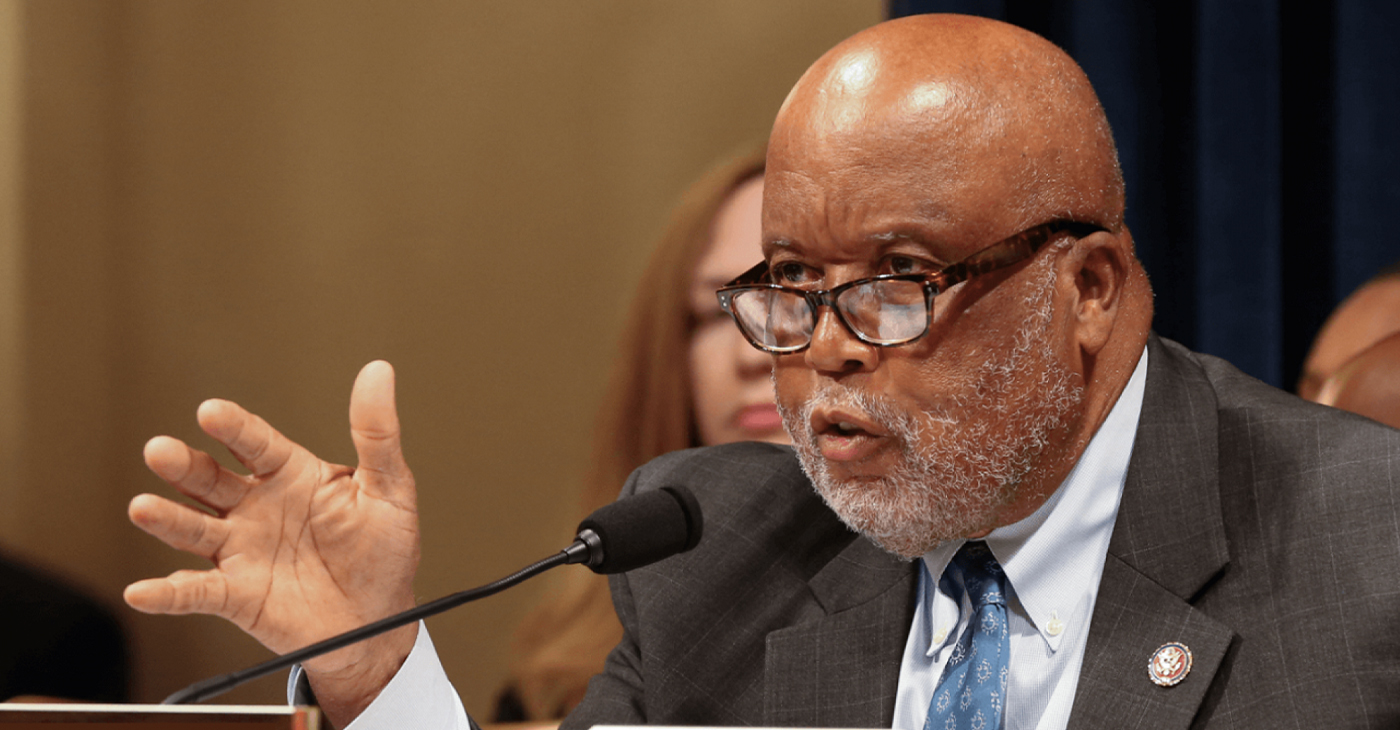Politics
Justices Turn Away Challenge to Wisconsin Voter ID Law

The Supreme Court building in Washington, Monday, June 30, 2014, following various court decisions. (AP Photo/Pablo Martinez Monsivais)
Scott Bauer, ASSOCIATED PRESS
MADISON, Wis. (AP) — The U.S. Supreme Court on Monday turned away a challenge to Wisconsin’s voter identification law, after having blocked the state from requiring photo IDs in November’s general election.
The justices’ action means the state is free to impose the voter ID requirement in future elections, but Republican Wisconsin Attorney General Brad Schimel said it won’t be enforced for an election two weeks from now.
The decision is further evidence that the court put the law on hold last year only because the election was close at hand and absentee ballots already had been mailed with no notification of the need to present photo IDs.
The court did not comment on its order.
Early in-person absentee voting began on Monday for an April 7 election, similar to last year when the law was blocked, and absentee ballots have already been mailed without notification that photo IDs would be required.
“Absentee ballots are already in the hands of voters, therefore, the law cannot be implemented for the April 7 election,” Schimel said in a statement. “The Voter ID law will be in place for future elections – this decision is final.”
His decision came less than two hours after the American Civil Liberties Union filed an emergency motion with the 7th U.S. Circuit Court of Appeals in Chicago asking that the law remain blocked through the upcoming election because there isn’t enough time to implement it before then.
Having it take effect now “would cause all kind of confusion,” said Dale Ho, director of the ACLU’s Voting Rights project. Ho did not immediately respond to a message seeking his reaction to Schimel’s decision.
A state Supreme Court justice will be elected in the spring election. Voters will also decide whether to amend the Wisconsin Constitution to change how the chief justice of the state Supreme Court is decided. There are also dozens of local races on the ballot.
Wisconsin was one of four states in which a dispute over voting rules reached the Supreme Court last fall. The other states were North Carolina, Ohio and Texas. Of the four states, only Wisconsin’s new rules were blocked.
Wisconsin’s photo ID law has been a political flashpoint since Republican legislators passed it in 2011 and Gov. Scott Walker signed it into law. The GOP argues the mandate is a common sense step toward reducing election fraud. Democrats maintain that in-person voter fraud is extremely rare and that the law is really meant to disenfranchise voters who tend to vote Democrat and who may be more likely to lack proper ID, such as the poor, minorities and the elderly.
Republicans who support the law hailed the court’s decision as a victory for voters, while the League of Women Voters said it was disappointed that the challenge would not be heard.
“The last thing we need is laws that erect barriers for people who have been good voters for decades,” said Andrea Kaminski, executive director of the League of Women Voters of Wisconsin.
The law was in effect for the February 2012 primary but subsequent legal challenges put it on hold and it hasn’t been in place for any election since.
The ACLU and allied groups persuaded a federal judge in Milwaukee to declare the law unconstitutional last year. But the 7th U.S. Circuit Court of Appeals in Chicago later ruled that the law did not violate the Constitution.
The Supreme Court refused to disturb that ruling on Monday.
___
Associated Press writer Mark Sherman contributed to this report from Washington, D.C.
___
Follow Scott Bauer on Twitter at https://twitter.com/sbauerAP.
Copyright 2015 The Associated Press. All rights reserved. This material may not be published, broadcast, rewritten or redistributed.
###
Activism
‘Donald Trump Is Not a God:’ Rep. Bennie Thompson Blasts Trump’s Call to Jail Him
“Donald Trump is not a god,” U.S. Rep. Bennie Thompson, D-Miss., told The Grio during a recent interview, reacting to Trump’s unsupported claims that the congressman, along with other committee members like vice chair and former Republican Rep. Liz Cheney, destroyed evidence throughout the investigation.

By Post Staff
U.S. Rep. Bennie Thompson, D-Miss., said he not intimidated by President-elect Donald Trump, who, during an interview on “Meet the Press,” called for the congressman to be jailed for his role as chairman of the special congressional committee investigating Trump’s role in the Jan. 6, 2021, mob attack on the U.S. Capitol.
“Donald Trump is not a god,” Thompson told The Grio during a recent interview, reacting to Trump’s unsupported claims that the congressman, along with other committee members like vice chair and former Republican Rep. Liz Cheney, destroyed evidence throughout the investigation.
“He can’t prove it, nor has there been any other proof offered, which tells me that he really doesn’t know what he’s talking about,” said the 76-year-old lawmaker, who maintained that he and the bipartisan Jan. 6 Select Committee – which referred Trump for criminal prosecution – were exercising their constitutional and legislative duties.
“When someone disagrees with you, that doesn’t make it illegal; that doesn’t even make it wrong,” Thompson said, “The greatness of this country is that everyone can have their own opinion about any subject, and so for an incoming president who disagrees with the work of Congress to say ‘because I disagree, I want them jailed,’ is absolutely unbelievable.”
When asked by The Grio if he is concerned about his physical safety amid continued public ridicule from Trump, whose supporters have already proven to be violent, Thompson said, “I think every member of Congress here has to have some degree of concern, because you just never know.”
This story is based on a report from The Grio.
Activism
City of Oakland Celebrates Reopening of Main Library
“Libraries are such critical facilities for all Oaklanders, whether it’s children coming to story-time, adults reading the newspapers or borrowing the latest novels, and people engaging with a range of services and programs that the library hosts,” said Council President and District 2 Councilmember Nikki Fortunato Bas. “Such library services and programs are only possible when the facility’s electricity, heating, roof, and lighting are fixed and running efficiently. I’m proud to join this re-opening of our Main Public Library.”

The branch had been closed since May for critical infrastructure upgrades
Special to the Post
The City of Oakland leadership and community partners gathered to celebrate the reopening of the Main Library after completion of critical infrastructure upgrades to enhance the library’s facilities and provide a better experience for patrons.
Renovations include new roof installation, skylight repair, critical electrical system upgrades, new boiler control system installation, auditorium heating and cooling system installation, and improvements to lighting, flooring and ceilings throughout the building.
“This is truly something to celebrate, the reopening of our wonderful Main Library! I congratulate the staff and our partners for this important project to make the Main Library a more comfortable place for everyone for years to come, said Oakland Mayor Sheng Thao. “Thank you to Oakland voters and the California State Library for making these crucial improvements possible.”
“Libraries are such critical facilities for all Oaklanders, whether it’s children coming to story-time, adults reading the newspapers or borrowing the latest novels, and people engaging with a range of services and programs that the library hosts,” said Council President and District 2 Councilmember Nikki Fortunato Bas. “Such library services and programs are only possible when the facility’s electricity, heating, roof, and lighting are fixed and running efficiently. I’m proud to join this re-opening of our Main Public Library.”
“Public libraries are a wonderful resource for our residents, offering a safe space for learning and being,” said District 3 Councilmember Carroll Fife. “It is critical to improve and modernize our libraries so more members of our community can utilize and enjoy them. I’m excited that the necessary renovations to the Main Library have been completed successfully and thank everyone involved, particularly the City team, who helped secured the necessary grant funds for this work.”
“I am proud of the City staff and project partners who kept this important project on schedule and under budget,” said Assistant City Administrator G. Harold Duffey. “The library is an incredibly important resource for our community members, and this project is an investment into the library’s future.”
“December 2nd was a momentous occasion for Oakland Public Library as we proudly reopened the doors of the Main Library following extensive infrastructure repairs,” said Director of Library Services Jamie Turbak. “Closing the Main Library for six months was no easy decision, as it serves as the central hub for our library system and is truly the heart of Oakland. Yet, this renovation was essential, representing more than just physical upgrades—it reflects our ongoing commitment to creating a safe, welcoming space for everyone.”
The City Administrator Jestin Johnson also attended the press conference and signalled his support for the completion of the record-setting completion of the renovations. Gay Plair Cobb, a newly appointed Library Commissioner said the Library represents the soul and brains of our community.
The Oakland Public Library secured funding for these crititcal repairs through a variety of sources. The California State Library’s Building Forward Library Facilities Improvement Program awarded the Main Branch $4.2 million. To comply with the grant terms, the City of Oakland provided matching funds through Measures KK, as approved by the Oakland City Council in October 2023.
The Main Library will host an Open House to celebrate the reopening on February 22, 2025, 10 a.m. – 5:00 p.m.
About the Oakland Public Library
The Oakland Public Library is a part of the City of Oakland in California and has been in existence since 1878. Locations include 16 neighborhood branches, a Main Library, a Second Start Adult Literacy Program, the Oakland Tool Lending Library, and the African American Museum and Library at Oakland (AAMLO). The Oakland Public Library empowers all people to explore, connect, and grow. Oaklandlibrary.org
Activism
Biden’s Legacy Secured with Record-Setting Black Judicial Appointments
His record surpasses previous efforts by his predecessors. President Jimmy Carter appointed 37 Black judges, including seven Black women. In stark contrast, Donald Trump’s first term resulted in only two Black women appointed out of 234 lifetime judicial nominations. The White House said Biden’s efforts show a broader commitment to racial equity and justice.

By Stacy M. Brown
WI Senior Writer
President Joe Biden’s commitment to diversifying the federal judiciary has culminated in a historic achievement: appointing 40 Black women to lifetime judgeships, the most of any president in U.S. history.
Biden has appointed 62 Black judges, cementing his presidency as one focused on promoting equity and representation on the federal bench.
His record surpasses previous efforts by his predecessors. President Jimmy Carter appointed 37 Black judges, including seven Black women. In stark contrast, Donald Trump’s first term resulted in only two Black women appointed out of 234 lifetime judicial nominations.
The White House said Biden’s efforts show a broader commitment to racial equity and justice.
Meanwhile, Trump has vowed to dismantle key civil rights protections, including the Justice Department’s Civil Rights Division.
“Having the Black woman’s experience on the federal bench is extremely important because there is a different kind of voice that can come from the Black female from the bench,” Delores Jones-Brown, professor emeritus at John Jay College of Criminal Justice, told reporters.
Lena Zwarensteyn of the Leadership Conference on Civil and Human Rights told reporters that these district court judges are often the first and sometimes the final arbiters in cases affecting healthcare access, education equity, fair hiring practices, and voting rights.
“Those decisions are often the very final decisions because very few cases actually get heard by the U.S. Supreme Court,” Zwarensteyn explained.
Biden’s nomination of Justice Ketanji Brown Jackson to the Supreme Court further reflects his commitment to judicial diversity. Jackson became the first Black woman to serve on the nation’s highest court.
Patrick McNeil, spokesperson for the Leadership Conference, pointed out that over half of Biden’s Black female judicial appointees have backgrounds as civil rights attorneys and public defenders, experience advocates consider essential for a balanced judiciary.
Meanwhile, Congress remains divided over the expansion of federal judgeships. Legislation to add 66 new judgeships—approved unanimously by the Senate in August—stalled in the GOP-controlled House until after the election. House Republicans proposed distributing the new judgeships over the next decade, giving three administrations a say in appointments. President Biden, however, signaled he would veto the bill if it reached his desk.
Rep. Jerry Nadler, D-N.Y., argued the delay was a strategic move to benefit Trump’s potential return to office. “Donald Trump has made clear that he intends to expand the power of the presidency and giving him 25 new judges to appoint gives him one more tool at his disposal,” Nadler said.
-

 Activism4 weeks ago
Activism4 weeks agoOakland Post: Week of November 20 – 26, 2024
-

 California Black Media3 weeks ago
California Black Media3 weeks agoCalifornia to Offer $43.7 Million in Federal Grants to Combat Hate Crimes
-

 Activism4 weeks ago
Activism4 weeks agoAn Inside Look into How San Francisco Analyzes Homeless Encampments
-

 Black History3 weeks ago
Black History3 weeks agoEmeline King: A Trailblazer in the Automotive Industry
-

 California Black Media3 weeks ago
California Black Media3 weeks agoCalifornia Department of Aging Offers Free Resources for Family Caregivers in November
-

 California Black Media3 weeks ago
California Black Media3 weeks agoGov. Newsom Goes to Washington to Advocate for California Priorities
-

 Activism3 weeks ago
Activism3 weeks agoOCCUR Hosts “Faith Forward” Conference in Oakland
-

 #NNPA BlackPress4 weeks ago
#NNPA BlackPress4 weeks agoPRESS ROOM: Clyburn, Pressley, Scanlon, Colleagues Urge Biden to Use Clemency Power to Address Mass Incarceration Before Leaving Office


























































